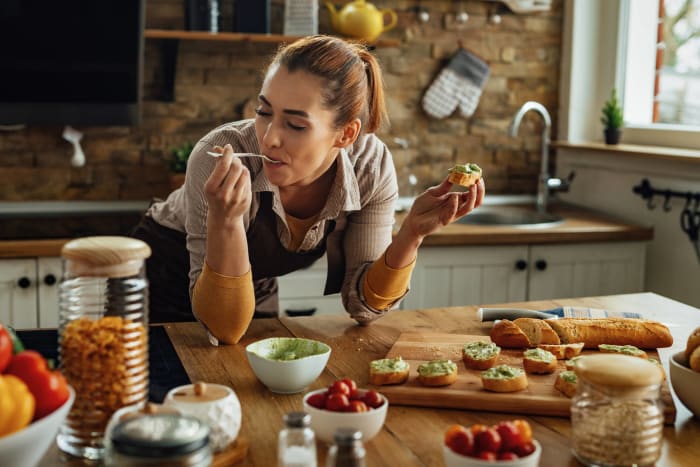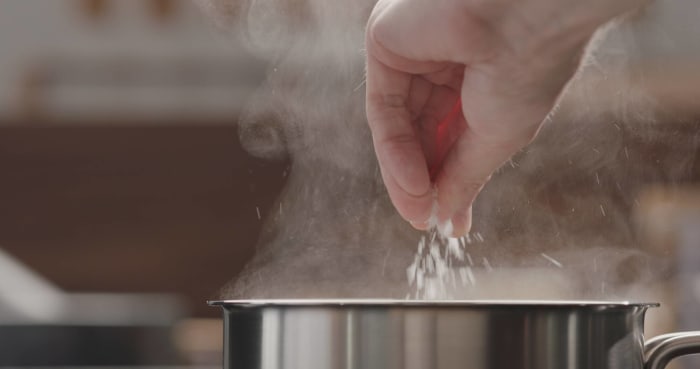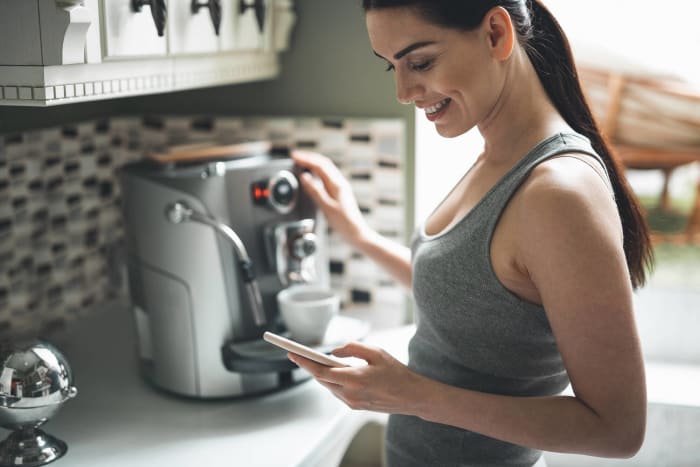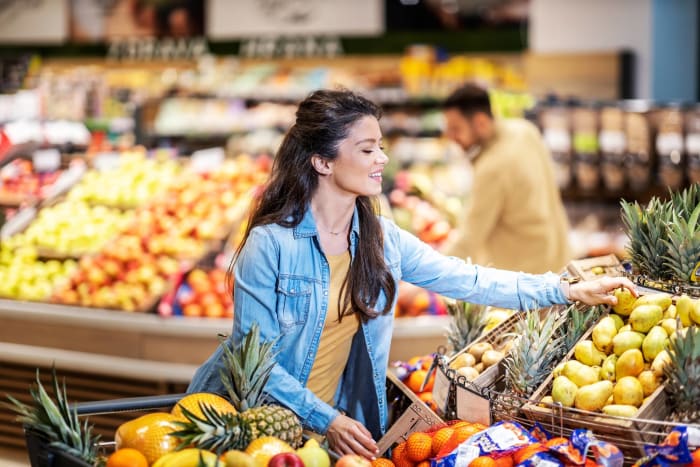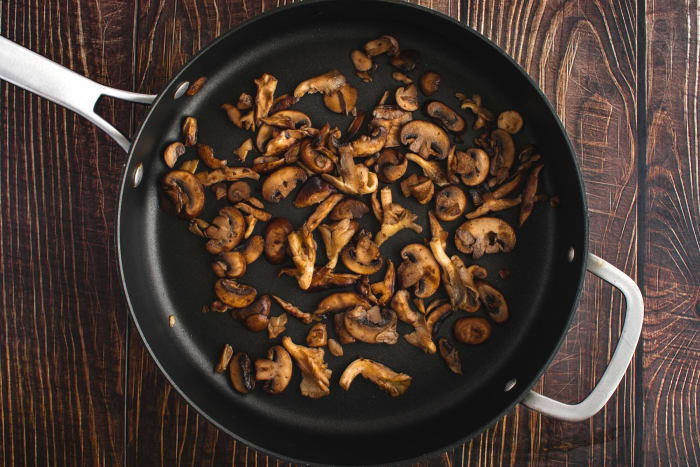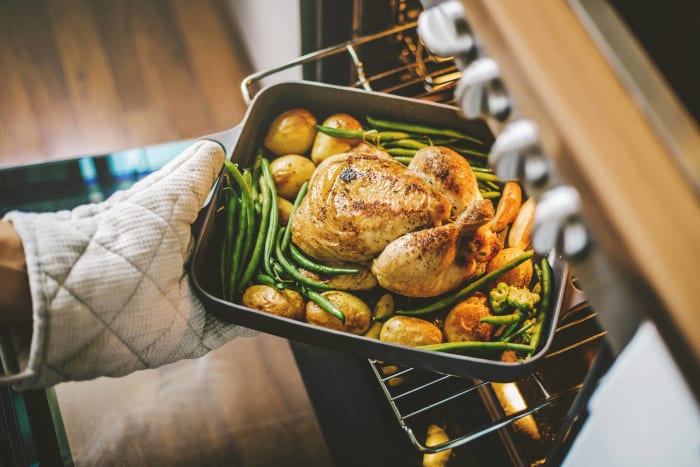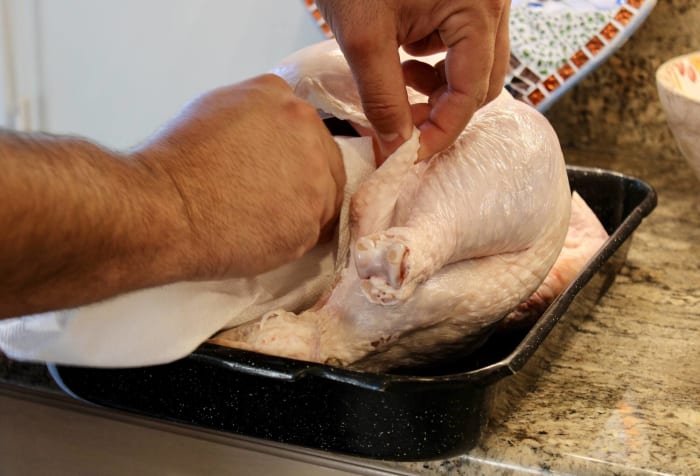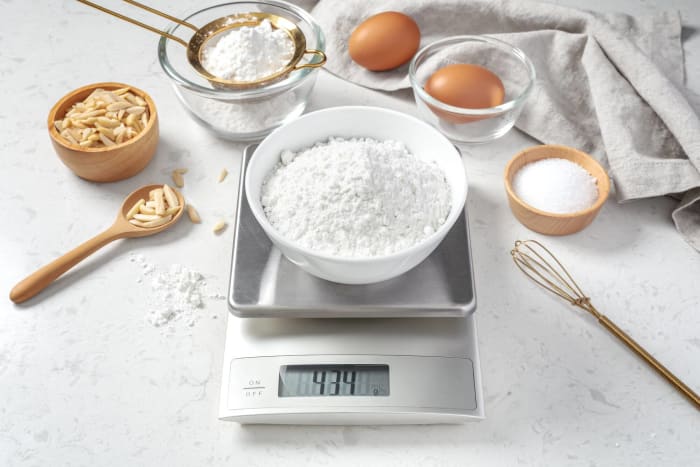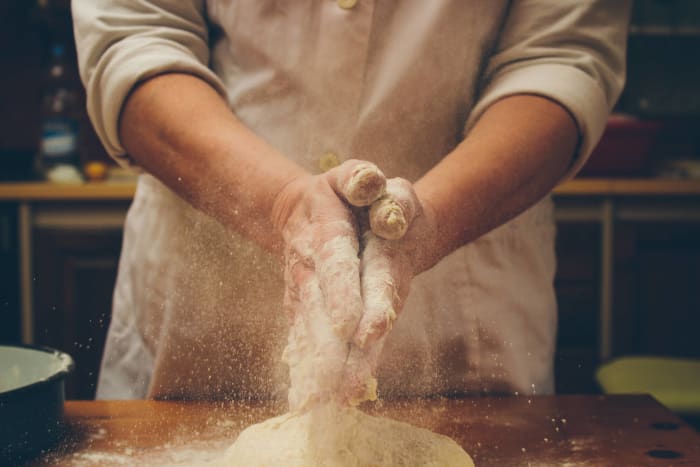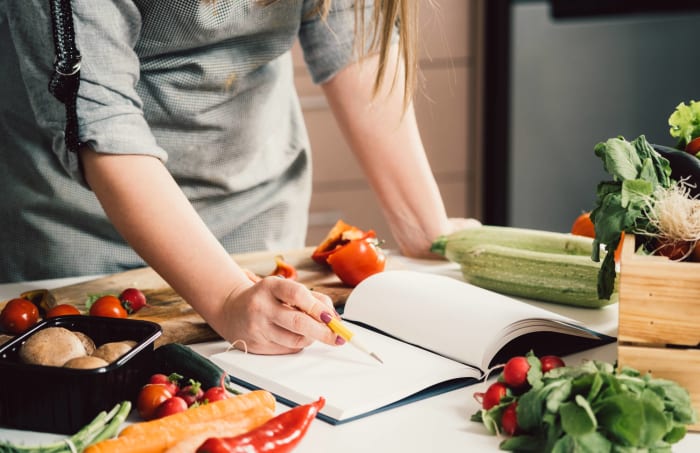Cooking isn't an innate skill for everyone, but with a few basic tips, anyone's food can instantly taste better.
Shutterstock
You can only adjust the flavor of a dish so much when it's finished cooking. Instead of panic-adding salt and pepper at the end, taste as you go so you know which ingredients you need more of at various stages. This will result in deeper, richer flavor profiles and overall better food.
2 of 20
Sharpen your knives
Shutterstock
Few things are worse or more dangerous in the kitchen than working with dull knives. It seems counterintuitive, but you’re far more likely to get hurt using a knife if it’s dull. Plus, sharp knives make cutting much easier, which results in more even cuts of ingredients.
3 of 20
Cut your ingredients evenly
Shutterstock
On that note, make sure your ingredients are all cut evenly for a better overall dish. Ingredients of different sizes will cook at different rates, resulting in a wonky dish full of different consistencies. Every bite will be the same if your ingredients are cut evenly.
4 of 20
Add salt to boiling water
Shutterstock
If you don’t think adding salt to boiling water makes a difference, try boiling once with salt and then again without. You’ll notice the difference. The salt adds loads of flavor to whatever you’re boiling. It’s a quick trick that has a huge payoff.
5 of 20
Invest in good hardware and tools
Shutterstock
Not all kitchen tools need to be top-of-the-line, but you’ll notice an improvement in your food if you invest in certain products. Good pots, pans, and knives are all worth investing in, as is anything you use often, like a stand mixer for baking or a good roasting pan for the holidays.
6 of 20
Read the entire recipe before you start cooking
Shutterstock
Read and re-read the entire recipe before you start cooking to familiarize yourself with what’s required. And if you’re not sure you know what the ingredients are, read it a day or two in advance so you aren’t scrambling at the last minute.
7 of 20
Learn cook times for commonly used ingredients
Shutterstock
If you use certain ingredients a lot, like chicken or onions, learn how long they take to cook on stovetops and in ovens. This will help you make adjustments to recipes, come up with your own recipes, and multitask in the kitchen.
8 of 20
Season cold foods more than hot foods
Shutterstock
Our tastebuds aren’t as receptive to cold foods as they are to hot, so the flavors don’t read as strongly. Season your cold food more heavily than you do hot foods so that they taste just as flavorful.
9 of 20
Know which gadgets are worthwhile
Shutterstock
If you’re new to cooking, certain gadgets can seem like lifesavers. But as you spend more time in the kitchen, you’ll learn which gadgets actually make a difference to your food and which are just nuisances (spoiler alert: it’s most). Get comfortable in your kitchen before purchasing something you might only use once.
10 of 20
Learn how to pick produce
Shutterstock
Produce is used in the kitchen constantly, and the better the produce, the better your dishes will taste. Learn how to spot a good melon versus a bad one, ripe avocados, flavorful tomatoes, etc., and you’ll notice a huge improvement in the freshness of your food.
11 of 20
Master basic dishes first
Shutterstock
If don’t run, you shouldn’t try to run a marathon without training. If you don’t cook, you shouldn’t try to cook Beef Wellington with no training. Start with basic dishes, like scrambled eggs and chocolate chips, before getting into Béarnaise sauce and croissants.
12 of 20
Don’t overcrowd the pan
Shutterstock
Food needs space to cook. If your pan is too crowded, your food won’t cook evenly. Instead of putting everything you have in the pan at once, cook it in shifts. The same goes for baking. Don’t put too much on your baking sheet at once.
13 of 20
Get to know your oven
Shutterstock
It might sound silly, but all good cooks know that getting to know your oven is vital to having tasty food, especially when baking. All ovens are different, and cook times in recipes should be more of a guide than a hard-and-fast rule. If you know your oven cooks fast, don’t leave your dish in for as long as the recipe calls.
14 of 20
Always let your meat rest
Shutterstock
Don’t carve your meat the moment it is removed from its heat source. Let it rest for a bit to finish the cooking process and soak in all its moisture and flavor. Rest times will vary depending on the size, but always give it at least five minutes before cutting into your meat.
15 of 20
Season your foods from afar
Shutterstock
When seasoning, put some distance between your herbs and your food. This will make your seasoning more even, resulting in tastier food. You might have to clean up a little more, but the taste will be worth the little mess.
16 of 20
Pat your meats dry
Shutterstock
Meats come out of their packaging wet, and the first thing you should do is pat them dry. Seasoning will adhere to it better, as will any oils or marinades you use, and it will cook better. Plus, it will make it far less gross to touch.
17 of 20
Be precise with your measurements
Shutterstock
Measurements are added to recipes for a reason, especially in baking. Much of cooking is creating chemical reactions, and those reactions won’t happen properly if you’re using too much or too little of an ingredient. For the best-tasting food, be precise with your measurements, especially in the beginning.
18 of 20
Learn which ingredients can and cannot be substituted
Shutterstock
This is another tip that’s especially crucial in baking. Not all ingredients can be swapped in recipes, as some act as agents for chemical reactions. Learn which ingredients can be substituted, like chocolate chunks for chocolate chips, and which can’t, like baking soda for baking powder.
19 of 20
Leave notes in your recipes
Shutterstock
When you cook a new recipe, you will likely find something you want to change for the next time. Make a quick note of it wherever you keep your recipes so you can follow it when you cook it again.
Shutterstock
Remember that cooking takes time. It takes time to learn how to do it well and it takes time for food to actually cook. Don’t rush the process. Be patient and wait for the best results.
Acacia is a South Dakota-based writer with a love of all things pop culture, particularly music, television, and celebrities. Her previous work can be found on Nicki Swift and Mashed. When she's not writing, Acacia is watching television, listening to music, completing a crossword puzzle, or reading.
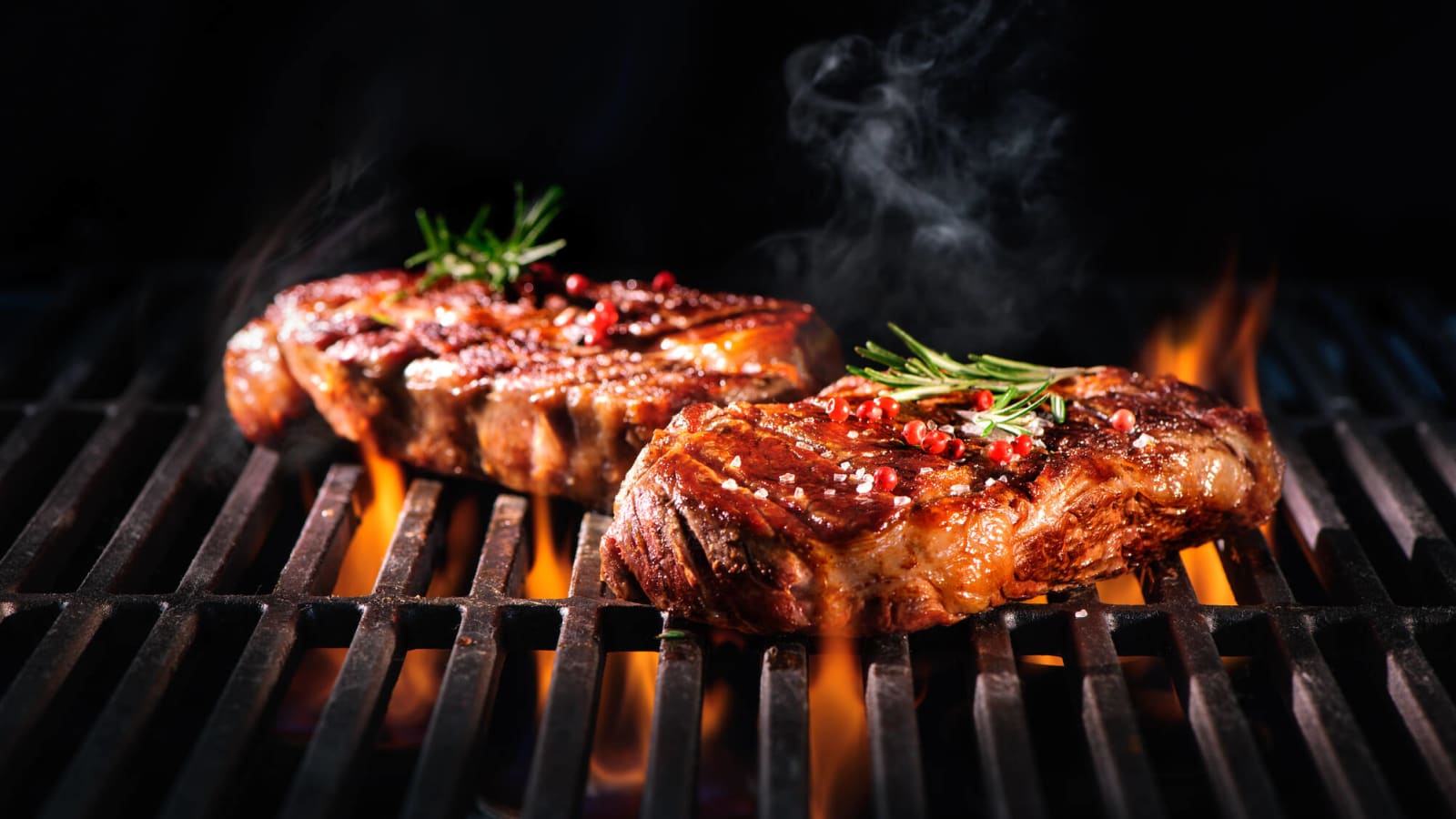
 +
+
